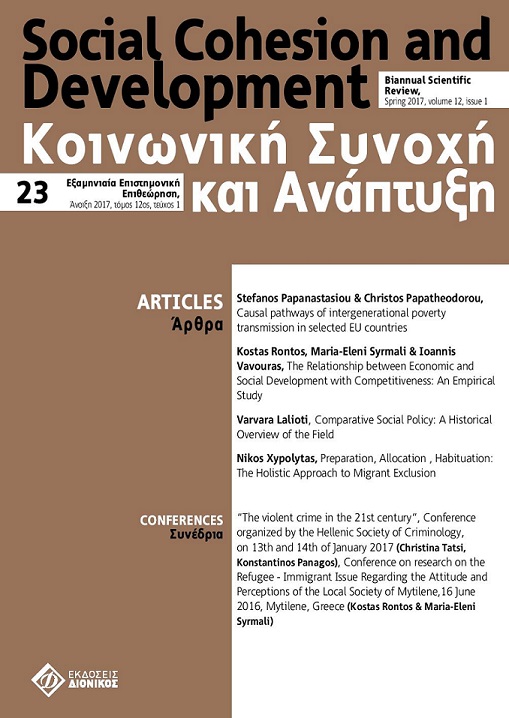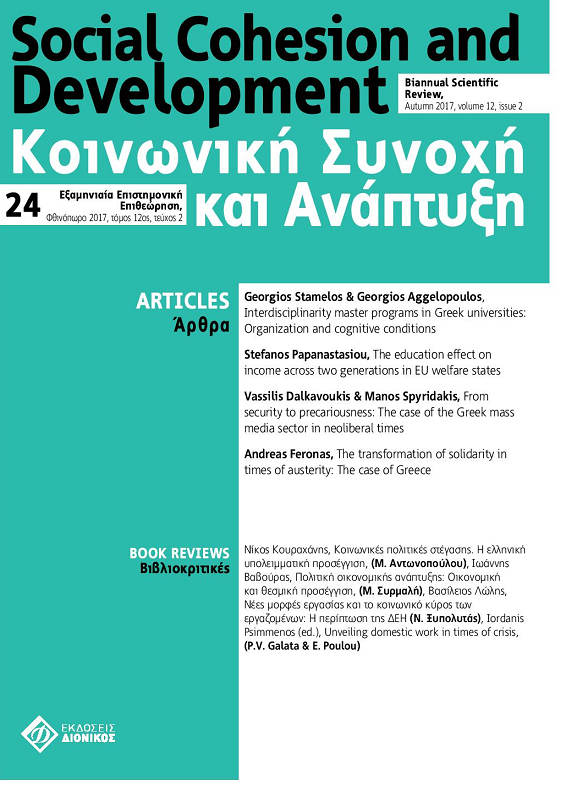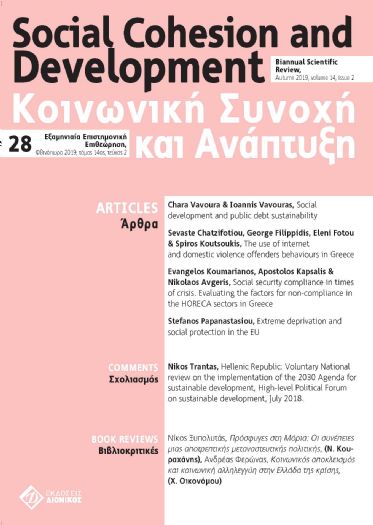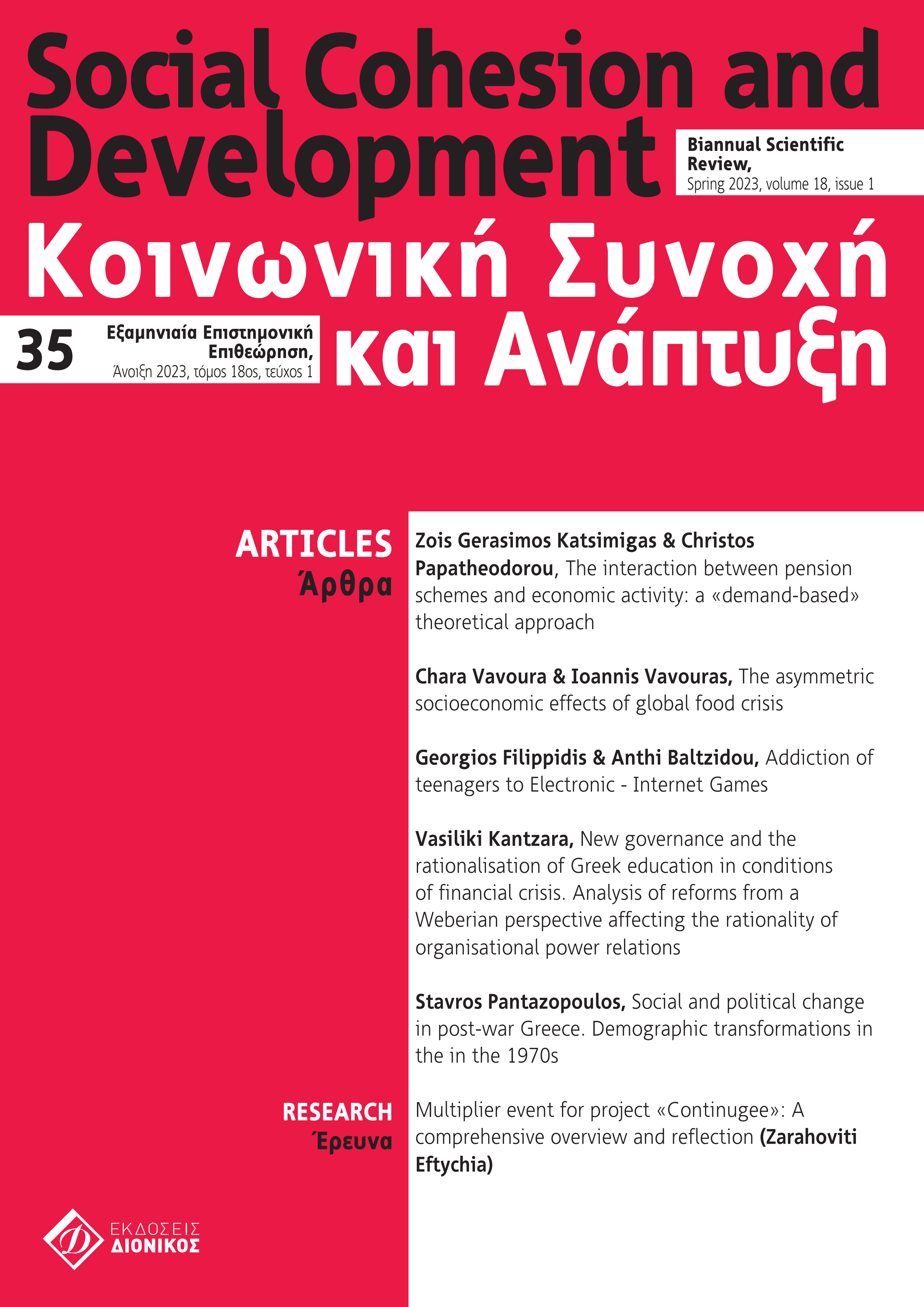Causal pathways of intergenerational poverty transmission in selected EU countries
Abstract
The paper investigates whether, in what way and to what extent the family of origin affects offspring’s poverty risk in selected EU countries
representing different social protection systems. Employing logit models and utilizing EU-SILC data, the analysis brings to the forefront the importance of social protection for intercepting the intergenerational transmission of poverty. Denmark with the socialdemocratic welfare state is the most successful in mitigating the effect of the family of origin on offspring’s poverty risk, followed by France representing the conservative-corporatist welfare regime. Less effective οn this matter appear to be Greece and Great Britain representing the south-European and the liberal social protection system respectively.
Article Details
- Zitationsvorschlag
-
Papanastasiou, S., & Papatheodorou, C. (2018). Causal pathways of intergenerational poverty transmission in selected EU countries. Social Cohesion and Development, 12(1), 5–19. https://doi.org/10.12681/scad.15941
- Ausgabe
- Bd. 12 Nr. 1 (2017)
- Rubrik
- Articles

Dieses Werk steht unter der Lizenz Creative Commons Namensnennung - Nicht-kommerziell - Weitergabe unter gleichen Bedingungen 4.0 International.
Authors who publish with this journal agree to the following terms:
- Authors retain copyright and grant the journal right of first publication with the work simultaneously licensed under a Creative Commons Attribution Non-Commercial License that allows others to share the work with an acknowledgement of the work's authorship and initial publication in this journal.
- Authors are able to enter into separate, additional contractual arrangements for the non-exclusive distribution of the journal's published version of the work (e.g. post it to an institutional repository or publish it in a book), with an acknowledgement of its initial publication in this journal.
- Authors are permitted and encouraged to post their work online (preferably in institutional repositories or on their website) prior to and during the submission process, as it can lead to productive exchanges, as well as earlier and greater citation of published work (See The Effect of Open Access).






